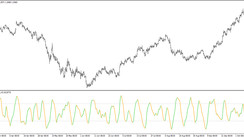Laying the Groundwork for Trading Success
The hallmark of trading success lies not in sporadic wins, but in sustained profitability over the long haul. Achieving this requires creating a robust trading plan and committing to it unwaveringly. Perhaps the most detrimental behavior for a trader is to disregard their own predefined trading guidelines, especially those dictating when to commence or conclude a trade. To overcome this destructive pattern, a thorough introspection into how one perceives the success or failure of individual trades is crucial.
Key Insights
- Long-term profitability in trading hinges on the formulation of an effective trading plan and strict adherence to it.
- Disregarding personal trading guidelines can be incredibly damaging for a trader.
- The success or failure of a trade should be gauged based on the adherence to the trading plan, rather than the profit or loss it generated.
Reframing Success and Failure in Trading
Overcoming unproductive trading habits necessitates a reframing of how success and failure are perceived in trading. Success or failure should not be judged based on the profit or loss a trade brings, but rather on the trader's adherence to their trading plan. An unplanned trade, deviating from your established blueprint, should be seen as a failure, regardless of its outcome. It is crucial not to cultivate bad discipline by rewarding yourself for such behavior.
Contrarily, even if a trade executed according to plan results in a loss, it should be considered successful because it adhered to the plan. A comprehensive trading plan factors in the inevitability of losses. If you punish yourself for a losing trade made as per the plan, you're likely to deviate from your plan in the future, leading to reckless trading that could obliterate your trading accounts over time.
The Downside of Profitable Bad Trades
An all too common bad habit leading to potential ruin is retaining a trade sinking into losses, well past your stop-loss level, hoping for a turnaround. When such a trade does turn around and yield a profit, it strengthens the bad habit.
The situation worsens when you praise yourself for persisting until the trade turned profitable. Profits from such trades are more often than not, simply the fruits of good luck. But luck has an expiration date and is often followed by disastrous consequences when stop-loss levels are continuously disregarded.
Cultivating Good Trading Habits through Reward Systems
The initial step in redefining success and failure for individual trades is reshaping your inner dialogue. Traders should pat themselves on the back for sticking to their plans, irrespective of whether the trade was profitable. They should also admit failure when deviating from the plan. Implementing a system of rewards for adhering to the trading plan, even during a losing trade, or penalties for straying from it, might be beneficial.
Tweaking Your Trading Plan
The journey towards trading success begins with devising a profitable trading plan. However, market conditions evolve, and a strategy profitable one year might not be as effective the following year. If consistent losses ensue despite following your trading rules to the letter, it may be time to revisit, reassess, and modify your trading plan.
Now, let's explore some prevalent mistakes made by ineffective traders and discover how to avoid them.
Counterproductive Habits of Traders and Solutions
Bad trading habits can swiftly drain your trading account. Recognizing your detrimental habits forms half of the battle, as many traders struggle to identify them. Despite the inherent riskiness of the futures market, traders are frequently their own biggest threats.
Investing significant capital in a risky market with high leverage, harmful habits can prove devastating, if not lethal, in a metaphorical sense.”. Here are some common pitfalls you might encounter and how you can dodge them.
The Pitfalls of Ineffective Trading and Ways to Overcome Them
In the ruthless battlefield of trading, unfavorable habits can swiftly drain your trading account. The first step towards progress is acknowledging your weaknesses, which is often challenging for many traders. Remember, in an environment as risky as futures market, traders are usually their greatest enemies.
When you stake a significant portion of your capital in a volatile market with high leverage, poor habits can be detrimental, if not catastrophic, metaphorically speaking. The irony lies in the fact that most traders are oblivious to their destructive habits. We are the product of our actions, and if our negative habits overshadow our positive actions, then YOU become your biggest risk in the market – and you may not even realize it.
All traders possess their own shortcomings, inefficiencies, and peculiarities. Your responsibility is to understand yourself better, to discern how you operate, whether consciously or unconsciously. Fortunately, the unfavorable habits that many traders exhibit are relatively common and fall into groupable categories: risk management, general knowledge, and discipline.
Let's dive into seven significant self-inflicted obstacles that might be thwarting your trading success.
Unfavorable Trading Habit 1 – Neglecting to Manage Your Trading Risks
Perhaps you persistently cling to trades that have gone sour. Or you may struggle to pinpoint when a trade starts to turn "bad", irrespective of its direction.
Keep in mind that a "bad trade" is not necessarily a trade that results in a loss. That’s merely the outcome of a trade. A bad trade is one that you didn’t plan or manage from inception to conclusion.
Here's how to differentiate:
A bad trade that results in a profit is pure "luck". A bad trade that ends up losing money is just a bad trade coming to fruition. A well-executed trade that yields a profit is a good trade. A well-executed trade that incurs a loss is a statistically expected drawback.
Profits and losses are inherent to the trading business. Both should be expected but within a statistically favorable model (whether real or hypothetical).
No sane trader would ever adopt a system or methodology that’s doomed to fail from the onset. Yet, many traders hold onto systems that consistently bleed their capital.
If your trading approach is consistently unprofitable, then either a) you didn't thoroughly evaluate the approach before implementation, b) you lack the knowledge to evaluate a given approach (which is essential), or c) your approach lacks a robust risk management strategy.
Solution: Before adopting any trading method or system, make sure you assess what you're about to adopt. Ensure the data sample is large enough to adequately represent its historical performance. If you're uncertain how to evaluate a system (there are numerous ways to do this), invest ample time in learning how to.
Whenever you initiate a trade, you should understand not just the odds of the system you're using, but also, on a tactical level, your entry and exit points, the size of your position, and the potential impact on your overall capital should the trade result in a loss.
Unfavorable Trading Habit 2 – Revenge Trading Following a Loss
If you're familiar with Sun Tzu’s The Art of War, then you grasp the principle of not rushing into battle. As he wisely states (paraphrasing here), victories can't be forced, but one can always be ready to seize the advantage when it arises.
Revenge trading, especially after incurring a loss, is an emotionally charged attempt to force a win. It's counterproductive, lacks strategy, relies on luck, foolish, and sadly prevalent among undisciplined traders.
There's no strategy that incorporates revenge trading. So, if to reduce verbosi you're revenge trading, it means you've deviated from your trading plan.
Solution: If you find yourself indulging in revenge trading, take a break. Switch off your trading screens, take a deep breath, and regain your composure. The market will always be there; opportunities will arise again. You need to ensure that you're in the right frame of mind to take advantage of them when they do. Remember, trading is not a game of chances, but of skill and strategy.
Unfavorable Trading Habit 3 – Overtrading
Overtrading can stem from many causes, such as an attempt to recover from losses (a variation of revenge trading), an insatiable desire to be 'in the action', or a misunderstanding of the market. Regardless of the cause, the result of overtrading is usually a depletion of your trading account.
Solution: To avoid overtrading, you must have a clear trading plan and stick to it. This plan should outline the specific conditions under which you'll enter and exit trades. And remember, sometimes the best trade is no trade at all.
Unfavorable Trading Habit 4 – Not Keeping a Trading Journal
Many traders neglect to keep a record of their trades, leading them to repeat their mistakes over and over. Keeping a trading journal is critical for your growth and development as a trader, as it provides valuable insights into your trading habits and strategies.
Solution: Always keep a trading journal. Record every detail about your trades: the asset you traded, the entry and exit points, the time of the trade, your profit or loss, and most importantly, your thoughts and feelings before, during, and after the trade. Review this journal regularly to identify any recurring patterns or mistakes, and adjust your trading strategies accordingly.
Unfavorable Trading Habit 5 – Failing to Adapt
Markets are constantly changing and evolving. A strategy that worked yesterday may not work today. Traders who fail to adapt to new market conditions are likely to experience diminishing returns over time.
Solution: Always be learning. Stay informed about market news and changes in market conditions. Don't be afraid to modify your trading strategies if the market requires it. But remember, any changes to your strategies should be based on careful analysis, not impulsive reactions to short-term market movements.
Unfavorable Trading Habit 6 – Lack of Discipline
One of the most damaging habits a trader can have is a lack of discipline. This can manifest in many ways, such as not following your trading plan, making impulsive trades, or letting your emotions dictate your trading decisions.
Solution: Strengthen your discipline by setting clear rules for yourself and sticking to them. Avoid impulsive decisions by always following your trading plan. If you find it difficult to control your emotions, consider implementing techniques such as mindfulness and meditation.
Unfavorable Trading Habit 7 – Unrealistic Expectations
Many traders enter the market with unrealistic expectations of quick and easy profits. This mindset can lead to reckless trading habits, as the desire for instant gratification overshadows the need for careful analysis and disciplined trading.
Solution: Understand that trading is not a get-rich-quick scheme. It requires hard work, discipline, patience, and a deep understanding of the markets. Always approach trading with a realistic mindset and a focus on long-term success.
Remember, the road to becoming a successful trader is a journey, not a sprint. It's filled with obstacles and challenges that will test your knowledge, discipline, and emotional resilience. But by acknowledging and overcoming your unfavorable trading habits, you'll be one step closer to achieving your trading goals.
In Conclusion: The Journey of Trading Mastery
Overcoming unfavorable trading habits is not an overnight event, but a continuous process that requires self-awareness, dedication, and discipline. Trading, in its essence, is a journey of self-discovery and mastery. It requires not just understanding the complexities of financial markets, but also understanding your own behavior and emotions.
It's important to remember that every trader, regardless of their level of experience, grapples with these challenges. The world's most successful traders didn't get where they are by avoiding mistakes, but by embracing them as stepping stones towards their success. They used their experiences, both positive and negative, as valuable lessons to refine their trading strategies and develop a resilient mindset.
Also, recognize that trading is not merely a financial pursuit, but also a mental and emotional one. Embrace mindfulness, patience, and emotional control as your allies in this journey. Understand that behind every trade, there is an opportunity for growth and improvement.
Lastly, remember to treat trading as a business. It involves risks and requires careful planning, strategy, and execution. Like any business, it demands consistency, perseverance, and a commitment to continuous learning.
In the grand scheme of trading, success is not defined by how often you win, but by how you handle your losses. It's about maintaining a balanced perspective, learning from your mistakes, and continuously striving to improve your skills and understanding.
Embrace the journey of trading with an open mind and a steadfast spirit. In the end, the journey itself is just as valuable as the destination. Remember, every trader has the potential to achieve greatness; it's all about making the right choices, being consistent, and above all, believing in yourself. Here's to your success on your trading journey. Safe travels!





